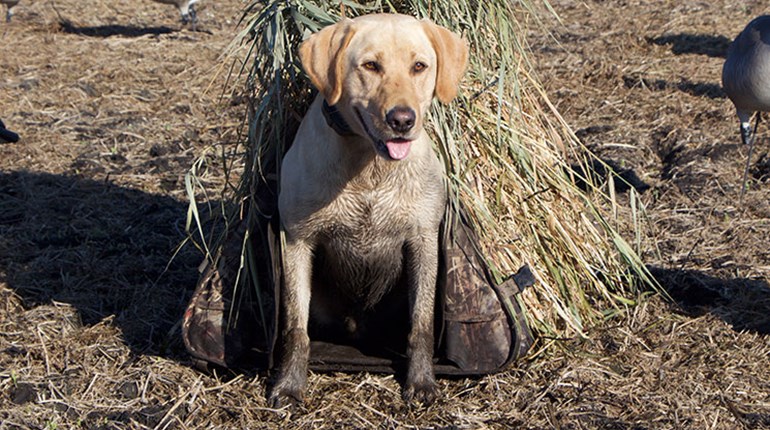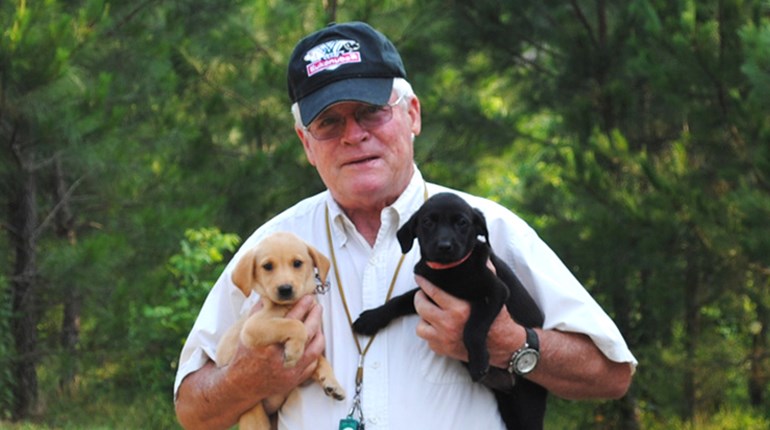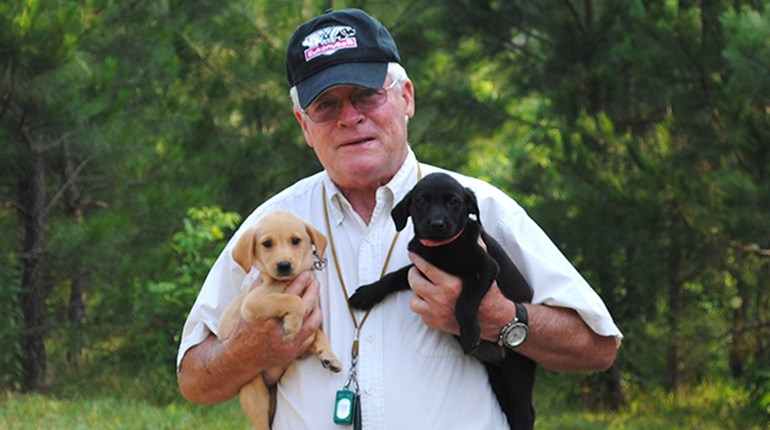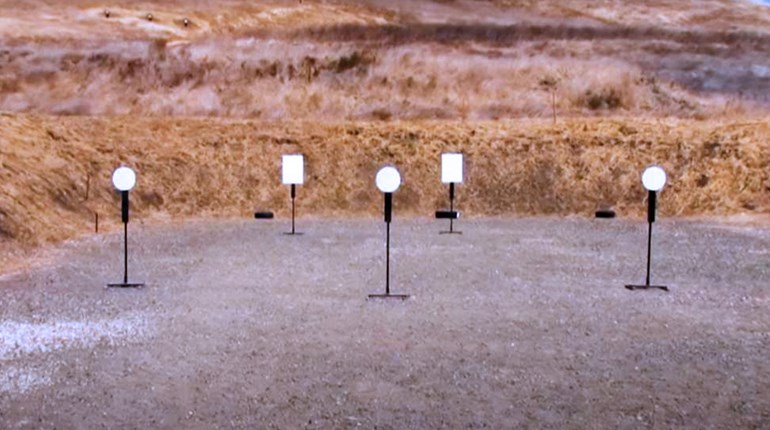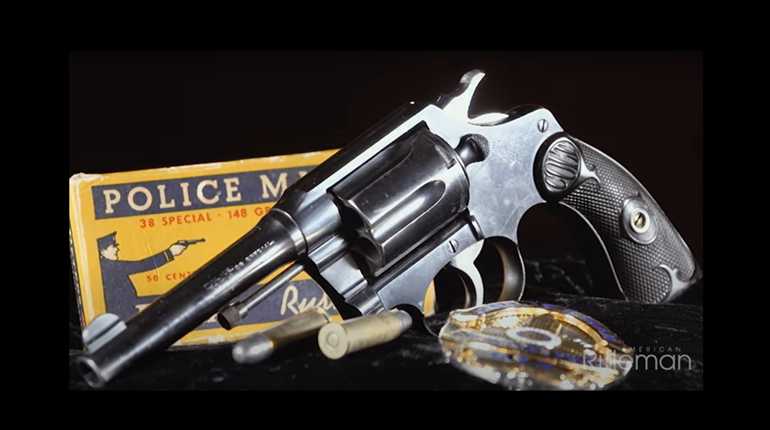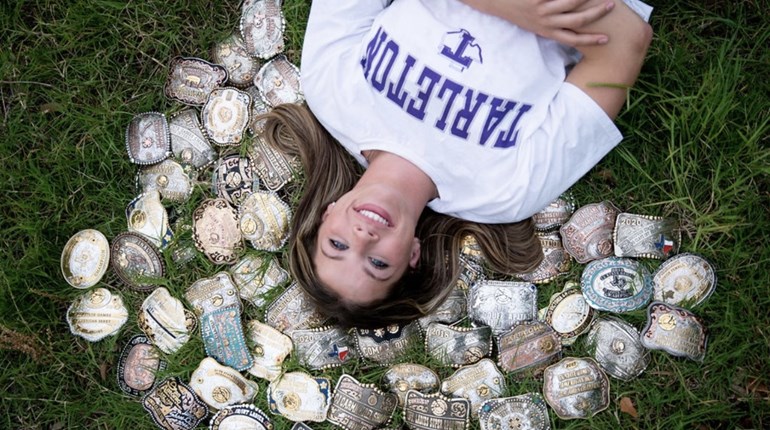
Dog trainer Robert Milner's love of dogs goes back to his childhood. “I've always had dogs," says Milner, who trained his first dog-a Golden retriever-when he was 12 years old.
The story almost had an unhappy ending. At just a few months old, the puppy was hit by a car. “It really busted up his hip," he recalls. The vet said he could operate, but it would be expensive and the odds were against success. Milner's parents decided the pup would have to be put down.
Fast-forward a month to mid-December, and young Milner was called to the phone. “I've got a Christmas present for you," said the vet. The good doctor had secretly and successfully operated on the puppy, which was now ready to go home to the boy.
Milner would go on to train his puppy as a gundog so that it could accompany him and his dad on their duck-hunting trips. “I trained the dog to bring me the ducks back," he says with a laugh.
The Pro
After college and active duty in the Air Force, Milner started his dog-training career in earnest. Today, some 40 years later, he owns and operates Duck Hill Kennels in Somerville, Tenn., where he breeds British Labrador retrievers and conducts training classes and seminars.
“My gun dog is my best friend," says Milner, “and should be treated and trained accordingly."
For 30 years, he relied on traditional compulsion training-“the choke chain, jerk them on the neck and that stuff," says Milner. But in the aftermath of 9/11, he began looking for a better way.
The change in Milner's training approach began with a call from Tennessee Task Force 1 (TN TF-1), a Federal Emergency Management Agency (FEMA) construction collapse task team that was deploying to the Pentagon following 9/11. They wanted Milner to rebuild their disaster-search dog program, which he had started for them back in the mid-1990s.
So Milner brought in new Labrador retrievers because of their instinctive drive to hunt. He recruited new handlers-50 percent law enforcement officers and 50 percent fire fighters. And he began training both dogs and handlers.
But the training process was going to take about 18 months. “I said to myself, ‘This is too slow,'" says Milner. “So I decided to look for a better training model."
He found it in clicker training which, says Milner, “is simply reward training with an acoustic marker [something that makes a noise]." The clicker training, which is focused on positive reinforcement instead of force, was a complete success.
“By 2004," says Milner, “we had the full complement of 12 dogs, and the training process went from 18 months to six months."
In addition to rebuilding TN TF-1's dog program, Milner worked with the task force as a dog handler, search team manager and task force leader. He deployed with them to the Winter Olympics in Salt Lake City and the Columbia Space Shuttle recovery, and assisted in disaster recovery efforts following hurricanes Francis, Ophelia, Ivan and Rita.
Duck Hill Kennels
By 2007, when Milner opened Duck Hill Kennels, he was committed to the new training model. “If I had not stumbled onto positive training and started using it, I'd be out of the dog business," says Milner. “Compulsion training wasn't fun for me anymore. Positive training is a lot of fun-for the trainer and the dog."
Milner and his staff train the British Labrador puppies they breed in a “puppy head start" program. They train older puppies and dogs (mostly Labs, including outside dogs) to become gundogs, disaster search-and-rescue dogs, and scent-detection dogs. They also teach the handlers.
The emphasis is always on positive reinforcement training techniques based on two things: Dogs do what pays, and dogs quit doing what doesn't pay. To this end, the trainer or handler must understand what a payment is and must control the pay.
Puppy Head Start Program
Milner's puppy head start program involves training entire litters and starts when the puppies are eight weeks old. “We teach them to traverse obstacles in litters," says Milner. “We teach them sitting in litters because it's convenient to teach them that way. Other than that, we work with them individually."
Using a clicker, Milner and his staff teach the puppies to “buy" rewards-such as treats, or play or retrieving. They learn basic behavior skills for three career paths-how to retrieve and deliver to hand, how to sniff and sit, and how to hunt on rubble piles as well as the correct behavior for whistle stops and directional casts. They also learn how to be calm and steady in new locations or when there are distractions.
At this age, the puppies respond best to food rewards. “That value structure will change after about six months of age when the puppy's metabolism slows down and he's not so hungry all the time," says Milner. “Then the retrieve becomes more important and we trade over for that."
Advanced Training
Advanced training is limited to dogs that are six months of age or older. Training is offered for gun dogs, disaster search-and-rescue dogs and scent-detection dogs. “Whether it's training a dog to hunt for game, for explosives or for rescue work, the root behavior is all hunting," says Milner. “The dogs are just hunting for different things."
“A gundog is for hunting birds," says Milner. “He just needs a little obedience and control behavior. The gundog finds a bird and brings it to you. His reward is the retrieve itself, and his report is to deliver it to hand."
Search-and-rescue dogs hunt for the scent of a living human trapped under rubble. “His training consists of learning that he gets paid [with a retrieve] for finding a buried person," says Milner. Search-and-rescue dogs report to their handlers with a bark and remain at the site until the handler arrives.
“When you have a major disaster with a lot of structural collapse, you really need to know where to dig first," says Milner. “A good search-and-rescue dog can search an acre in 10 minutes, and it would take hours for people to search that same area without a dog."
Explosive-detection dogs hunt for an explosive odor. “We want them to be quiet and move carefully," says Milner. They report their find by sitting.
Explosive-detection dogs work on leash and off leash. Leashed dogs search cars. One current use for unleashed dogs is to locate improvised detection devices (IEDs) in Afghanistan and Iraq. “They're doing very well," says Milner. “They're working off leash up to 200 meters under the directional control of their handlers. The handler tells the dog where to go check for explosive odor, and when the dog finds the explosive, it sits."
Explosive-detection dogs must learn the odors for different explosives. Training is ongoing for this because different there are always new explosives being developed.The idea is to make sure the dogs can “identify the odors that are popular with the bad guys," explains Milner.
Is It For You?
Robert Milner has a cool job. He has successfully trained more than 2,000 gundogs and is passionate about teaching them with the positive training techniques that make training fun for himself and the dog. Asked what his favorite part of the job is, Milner has no hesitation in responding, “playing with the puppies."
If you love dogs and enjoy working with them, maybe becoming a dog trainer is the cool job in your future. Even better, if you already have a dog, you can start developing your training skills right away.
For more about Robert Milner and Duck Hill Kennels, visit www.duckhillkennels.com.
What You Can Do Now: Milner's Five Tips for Future Dog Trainers
1) Visit www.clickertraining.com to find videos, books, blogs, clicker training kits and more.
2) Watch DVDs of dog training.
3) Read Don't Shoot the Dog by Karen Pryor (can be ordered through www.clickertraining.com or www.amazon.com).
4) Read Kicked, Bitten and Scratched: Life and Lessons at the World's Premier School for Exotic Animal Trainers.
5) Work with your dog, if you have one, using clicker training.













